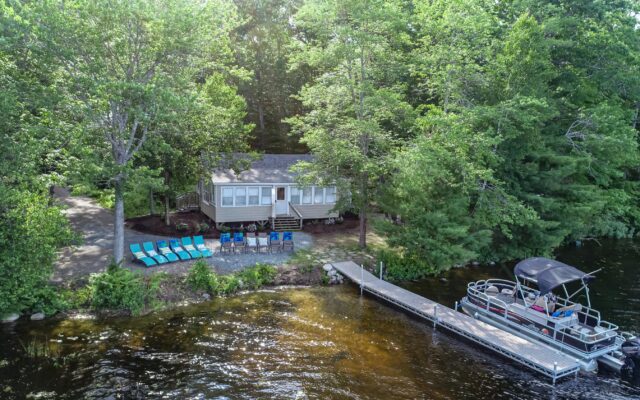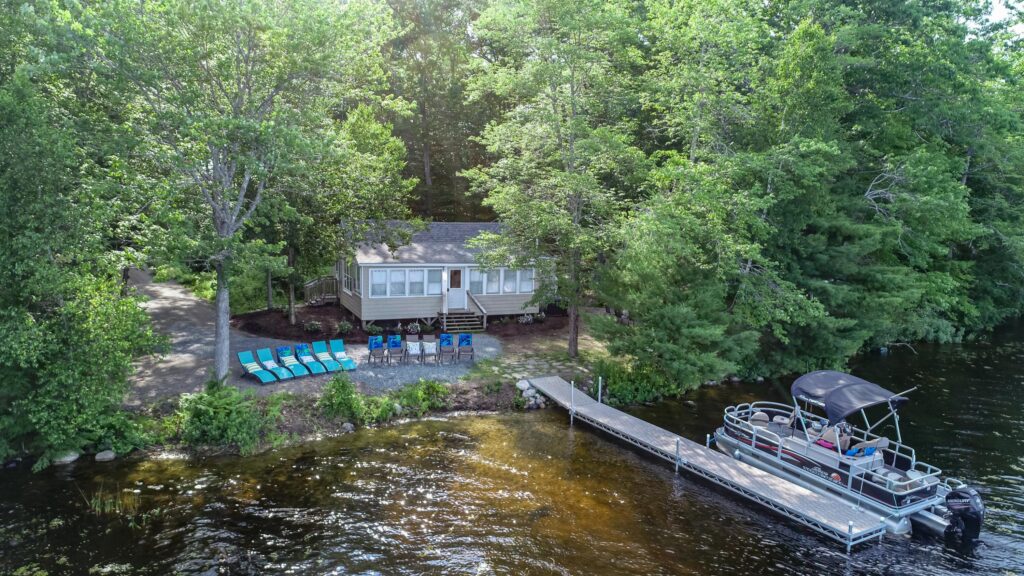
The dream of owning a rustic Maine waterfront camp is dead
By Kathleen O’Brien, Bangor Daily News Staff
While the number of homes for sale in Maine is growing, real estate agents from across the state aren’t seeing that trend extend to rustic waterfront camps.
Redfin reports housing inventory in Maine is on the upswing, with more than 7,300 listings in May, that’s 31 percent more than in May 2024.
However, the costs of those properties remain high. The average price of a Maine home was roughly $403,000 in May 2025, according to Redfin, which is 2.5 percent higher than a year ago.
“It used to be if you were heading up to Greenville or Jackman you could find something for around $250,000,” said Kara Bickford, a Coldwell Banker realtor based in Augusta. “You can’t find that anymore, which is sad.”

CAMP FOR SALE — 18 Loon Way in Orland, a camp on the market in Maine. The seasonal home market is heating up as summer approaches.
What many consider to be traditional Maine camps are no longer available or affordable to the average person. The properties that still fit the standard definition of such a camp are often handed down through families, while others have been turned into larger, year-round homes.
As of July 3, a search on Zillow for camps in Maine yielded 458 results, but if a buyer wants a waterfront property, those options shrink to 286. Listing prices for those properties range from roughly $30,000 to more than $4 million.
The cheapest options, however, require significant work to be habitable, or might need to be torn down altogether.
While realtors agree buyers can still find a modest but relatively affordable camp in rural, wooded areas of the state, the prices of seasonal homes with waterfront access have skyrocketed.
A decade ago, Bickford said buyers could find a quality lakehouse with three bedrooms for around $300,000. Today, a smaller camp on a lake would be listed for at least $500,000 to $600,000.
“Forget a lakehouse,” Bickford said. “You have to be multimillionaire to get a place on a lake now.”
Roughly 20 years ago, Fran Riley, a Belfast-based real estate agent with United Realty, sold a seasonal camp on Swan Lake with a bathroom and electricity for $89,000. She resold that same property a few years ago for nearly $400,000.
Aside from being in high demand, Bickford said the supply of camps has dwindled because people are hanging onto properties longer for two reasons.
First, families often keep camps and pass them down to children and grandchildren rather than selling them, Bickford said.
Additionally, many people who bought second homes in Maine have renovated them to add insulation and amenities like electricity and internet to make them livable for longer. This trend also transforms what many Mainers consider to be traditional camps and increases their value if they hit the market again.
Improving camps to live in them year-round became especially popular during the pandemic when many began working from home and residents from large cities came to Maine seeking space and solace, Riley said.
To further complicate matters, Riley said the rising cost of housing is making it hard enough for Mainers to afford a primary residence. Maine’s median per-capita annual income is roughly $42,000 while the average household income is nearly $73,000, according to the U.S. Census Bureau.
“So many people are struggling to find housing, so anything recreational is harder for the average person to come by,” Riley said. “You need two incomes to own a stable, residential home.”
While real estate agents warn camps are generally pricier than they once were and the pickings are slim, Dolly Perkins, a Realty of Maine agent in Dover-Foxcroft, said they’re attainable for buyers who manage their finances well and have few other expenses.
“It all depends on how a person manages their funds,” Perkins said. “If your house is paid off and you’re making $100,000, sure, you could afford a little camp.”